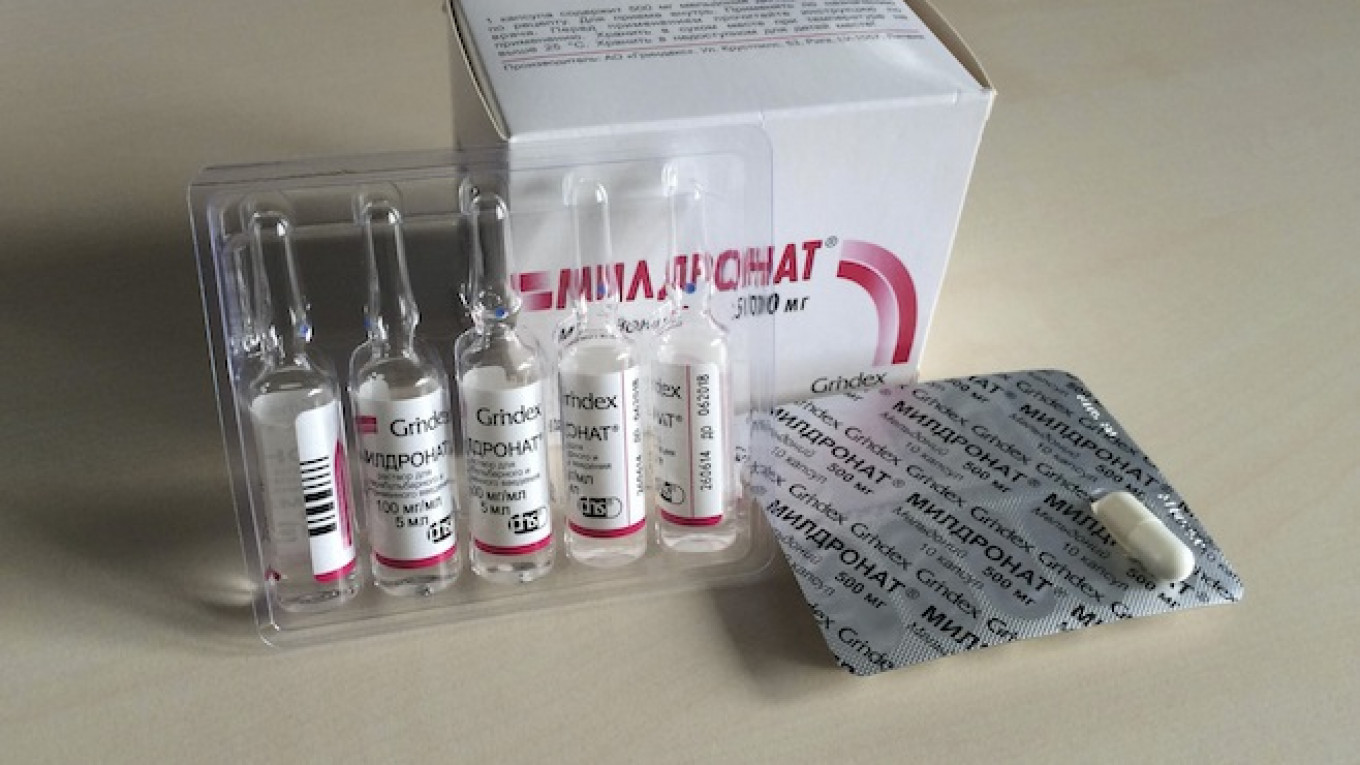Latvian pharmaceutical company Grindeks is petitioning the World Anti-Doping Agency (WADA) to remove meldonium from its list of banned substances, the Interfax news agency reported Monday.
Use of the drug, which was only banned at the start of 2016, has caused tens of Russian athletes to be suspended from competition, including tennis superstar Maria Sharapova.
Spokesperson Juris Bundulis said the company, which produces meldonium under its trade name mildronate, wants the drug to be taken off the blacklist in the near future.
“We appealed to WADA in a private letter with research material and dozens of publications. We are trying to convince them and ensure meldonium will not be on the [banned substances] list from Jan. 1 of next year,” Bundulis announced at a press conference at Grindeks headquarters in Riga on Monday, Interfax reported.
“We've managed to convince WADA before that meldonium did not need to be included on the [banned substances] list. The latest decision to include it after Jan. 1, 2016 came as a bit of a shock to us. We always advocate honesty and conduct research into all our own substances, including meldonium,” he added.
On April 13, WADA announced that a reading of less than one microgram of meldonium in an athlete’s drug tests would be acceptable if the test was taken before March 1, 2016. The decision could trigger a mass pardon that would see a number of athletes become able to compete again on the world stage.
A Message from The Moscow Times:
Dear readers,
We are facing unprecedented challenges. Russia's Prosecutor General's Office has designated The Moscow Times as an "undesirable" organization, criminalizing our work and putting our staff at risk of prosecution. This follows our earlier unjust labeling as a "foreign agent."
These actions are direct attempts to silence independent journalism in Russia. The authorities claim our work "discredits the decisions of the Russian leadership." We see things differently: we strive to provide accurate, unbiased reporting on Russia.
We, the journalists of The Moscow Times, refuse to be silenced. But to continue our work, we need your help.
Your support, no matter how small, makes a world of difference. If you can, please support us monthly starting from just $2. It's quick to set up, and every contribution makes a significant impact.
By supporting The Moscow Times, you're defending open, independent journalism in the face of repression. Thank you for standing with us.
Remind me later.






